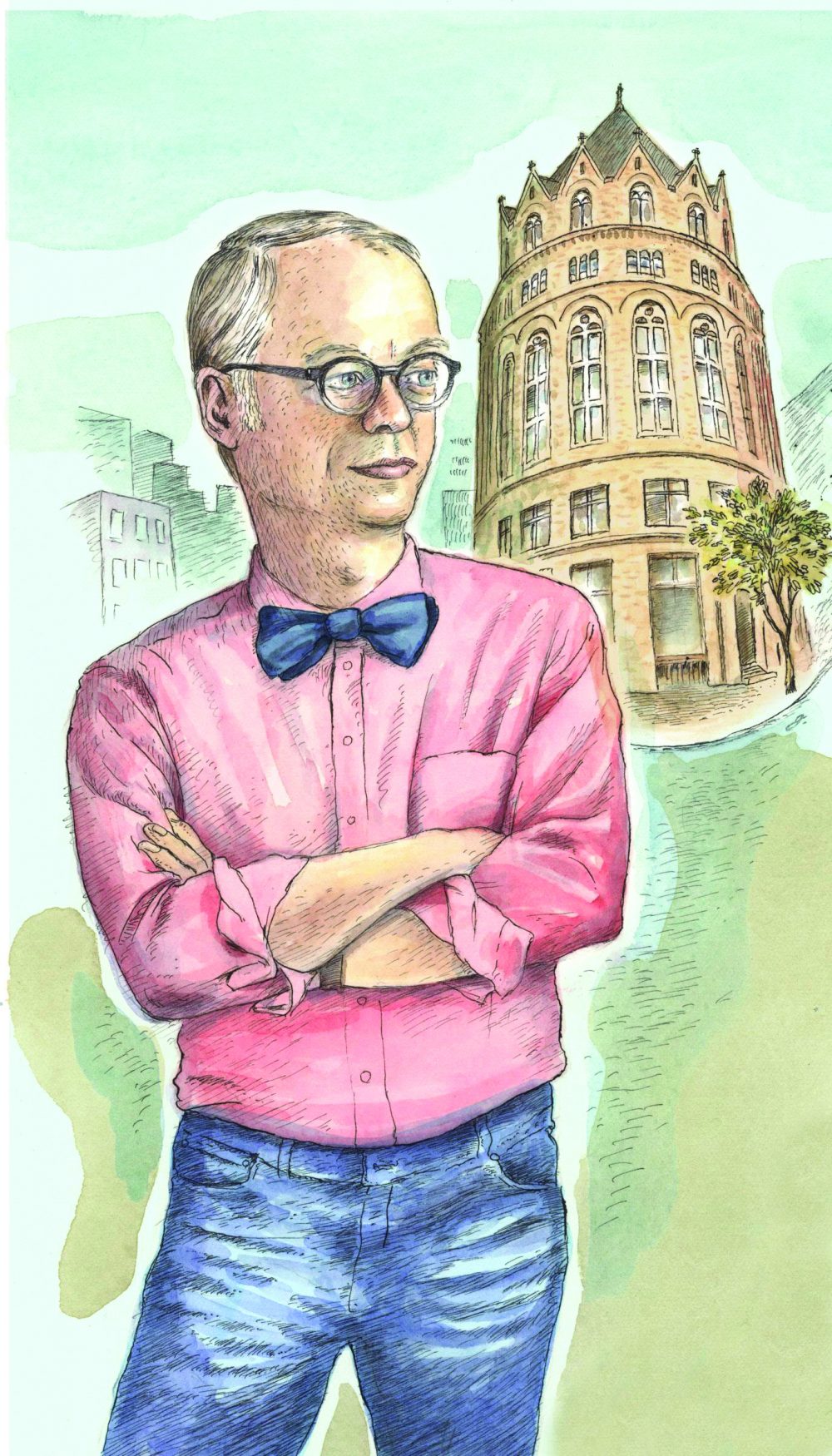Your email address is required to begin the subscription process. We will use it for customer service and other communications from Milk Street. You can unsubscribe from receiving our emails at any time.
The Iron Curtain
Back to January-February 2018

We started by hitchhiking from the Munich airport to Salzburg. It was the summer of 1971 and a college friend was headed to Turkey to work on an archeological dig. I was along for the ride with just a few hundred dollars in my pocket, long hair, a knapsack full of books, a small bundle of clothes, a sleeping bag and a camera. Europe on $5 per day. After traveling to Istanbul, I would return to Salzburg to take a six-week immersion course in German.
After a few days in Vienna, where we stayed with an architect friend, we headed to Budapest and then down by train through Romania. We got off at the town of Sibiu in Transylvania on the basis of a short conversation with an American tourist in Hungary who told us that Dr. Frankenstein was buried at the local church. He was. (Any connection with Mary Shelley is pure speculation.)
The more interesting moment came around 5 a.m., when we exited the train. Two hundred commuters were standing around the station and when the long-haired American (me) exited, they found the sight compelling, enthusiastically marching behind us in a long line into town as if this were a wedding party. The walls were plastered with red-splashed communist “Worker of the Month” posters, and we finally found a place to camp, nearby an army training area with German shepherds and machine guns. Nobody spoke English, so navigating the menu at the main restaurant in town was pure guesswork; cabbage rolls, sausages, organ meats and wild boar. The waiter, however, was kind and helpful. You get good at communicating without words.
In Bucharest, we were followed everywhere by a plainclothes official; he walked just a few paces behind in broad daylight. Few locals would make eye contact and nobody would speak to us. The Iron Curtain was heavy. We finally made it down to Istanbul and the weight was lifted. Soccer and backgammon in the streets. Sweet tea. The souk where I saw kids coloring in the worn spots in rugs with magic markers. And we lived off cheap eats. Stuffed tomatoes. Kofte. Durum (thin slices of meat from a spit rolled up in lavash with salad). Simit (a sesame seed roll) for breakfast. Chopped up lamb parts of various types. Backlava, of course. The streets were serpentine, the walls whitewashed, the sunlight strong, bleaching the colors from the middle of the day. Topkapi. The Blue Mosque; leaving your shoes at the door. If you love history, the Byzantine Empire is around every corner, from broken statues to underground cisterns.
I boarded the Orient Express at the Istanbul train station and quickly found myself in the third-class coach with Turkish workers headed to Germany on six-month visas. It became clear that buying food on the train was not an option (no dining car as there was in the Agatha Chrisie story, “Murder on The Orient Express”) and that hopping off at various stops to buy food from local vendors was also dicey; I didn’t have the local currency and the train seemed to take off without warning. So, blood sausage it was due to the kindness of my fellow travelers. At the border with Bulgaria, I bought a tourist visa, since it was cheaper than a transit visa. The female conductor (the only language we shared was a smattering of bad German) noted that I would have to stay in Bulgaria for three days. Only the more expensive transit visa allowed me to pass through the country quickly.
In the middle of a wheat field, she was going to stop the train stop and throw me off. We sat in an empty compartment and talked until she softened, keenly interested in America. She left the compartment with a shy smile; I had received a reprieve. That night, I snuck into the empty first-class carriage to sleep. Early the next morning, my car derailed after hitting a cow. A few Turkish men ran out with long knives to dispatch the carcass. After most of a day, we managed to get moving toward Zagreb where I had to change trains for Austria. Hours went by. I was hungry and stuck in a bleak railyard. Nobody spoke English and every time a train came in, I had to suss out if it was mine. Finally, I was off through Yugoslavia toward Salzburg.
These days, I travel with a lot more comfort and a lot less risk. But when you depend on the kindness of strangers—Turkish workers sharing blood sausage—you quickly realize that nobody is a foreigner. You cannot share food with someone, or cook with them, without creating a bond of friendship. And that’s what recipes are all about. You get a taste of another people, not just of a different cuisine. Lablabi takes you to the smoky late-night cafés of North Africa. Cacio é pepe to a casual eatery in the Trastevere neighborhood of Rome. Pita bread to the bustling hummus joints of Tel Aviv. And Colombian guacamole to the brightly colored streets of Cartagena.
Sharing food is the oldest human tradition. It turns foreign into friend. It can even lift an Iron Curtain. Maybe that’s a good lesson for this 21st century.

